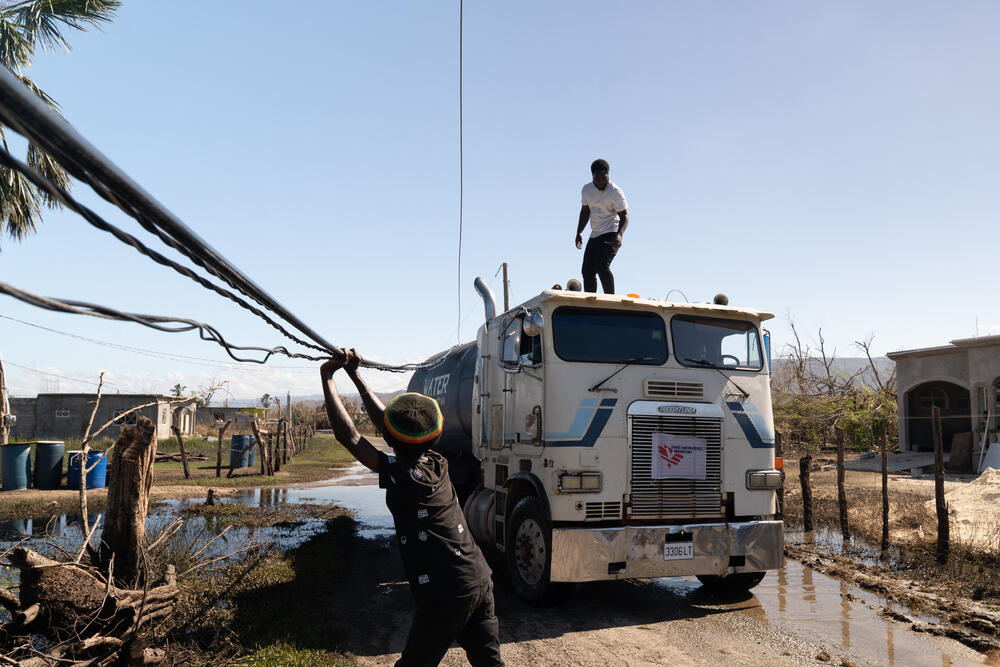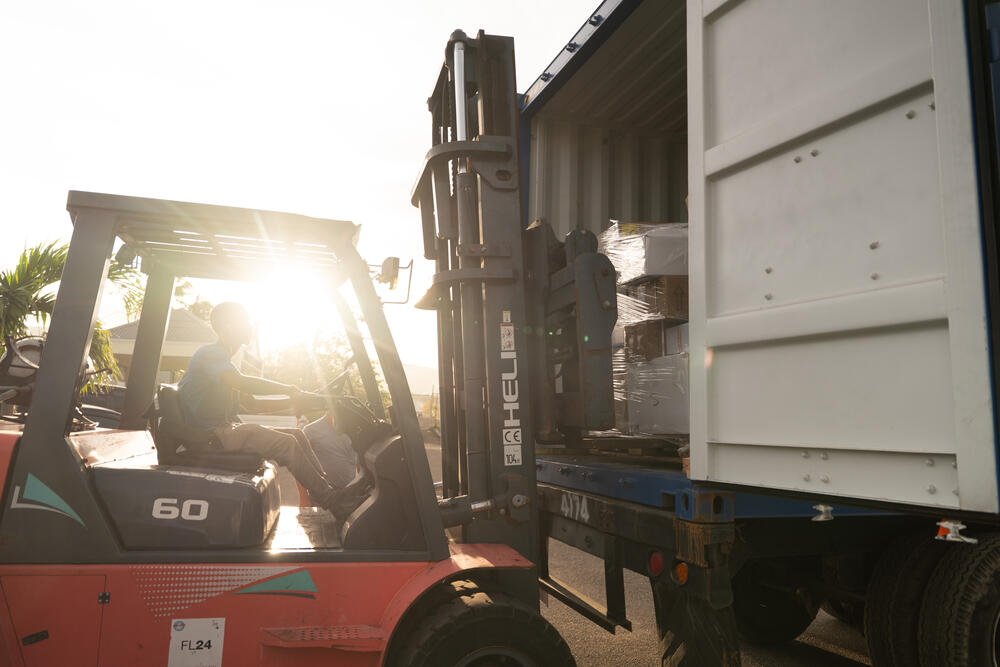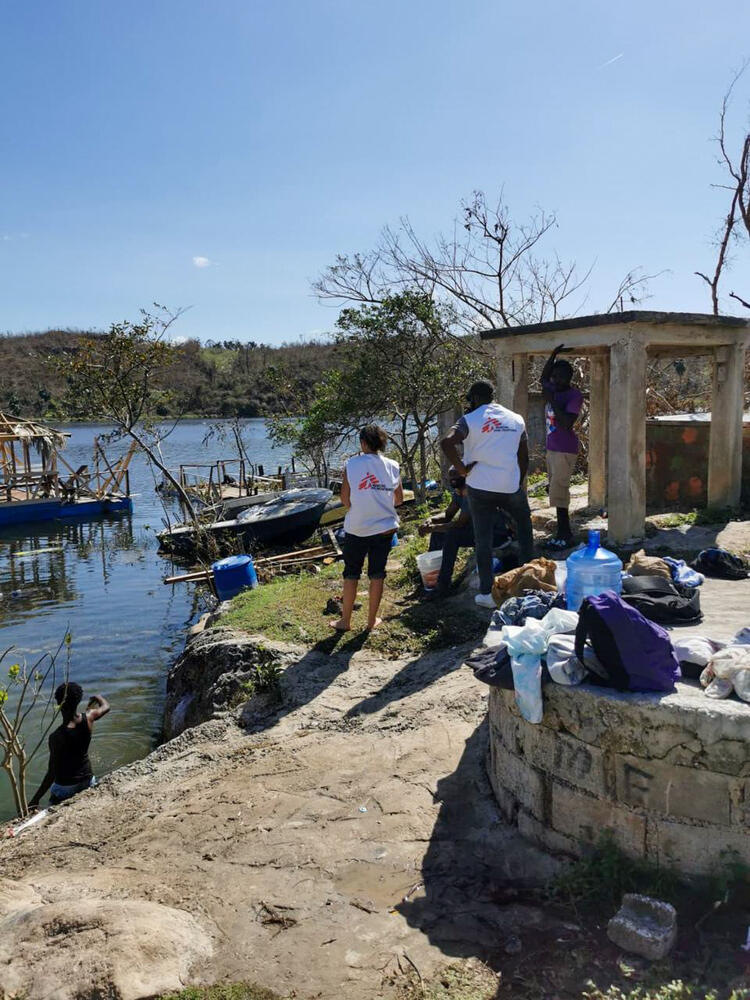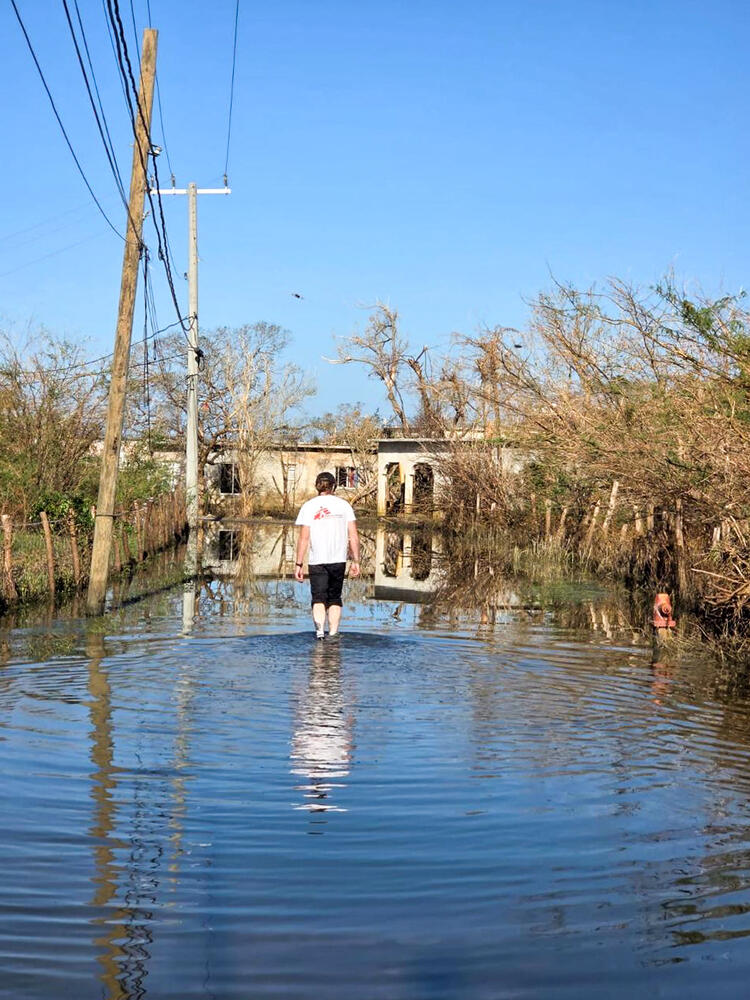Hurricane Melissa: “We need someone in Jamaica tomorrow, who have you got?”
On 30 October, the HR international staffing team in London received the urgent callout: did they have a health promoter available to send to Jamaica the next day?
Hurricane Melissa had just swept through the Caribbean country, causing major destruction and cutting people off from vital healthcare. MSF emergency operations were rapidly assembling their first response team. HR manager Karin Ions explains how she and her team support MSF's emergency response.
"In an emergency, acting fast means we can avoid the situation getting worse. For example, in Jamaica the hurricane damaged one of the key hospitals. The quicker we can go in and set up one of our modular field hospitals, the quicker we can provide care and avoid things like people’s wounds going septic.
Around the world, most MSF staff are local to the life-saving projects they support. However, in the UK, as in other MSF offices internationally, we play a vital role in dispatching specialist staff to where they are needed most. During breaking emergencies my team and I work around the clock to get the right people to the right place at the right time. There's a reason one colleague calls us 'HR on steroids'.
We have hundreds of people on our books. These are all UK-based professionals from a range of backgrounds: from construction logistics to water and sanitation experts (watsans) to very specialised medical doctors. In that pool, we have between 200 and 500 people who are active, which means they could be sent out in an emergency, circumstances permitting.
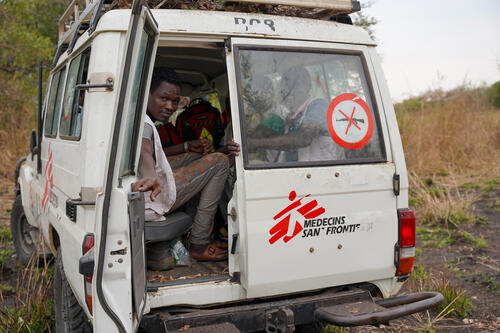
Because we recruit for a pool rather than a specific job, we are always considering who we might need given what's happening in the world and what might happen in future.
When it comes to natural disasters, we have a couple of construction logisticians who are in our pool now, intensive care nurses, surgeons, emergency doctors, watsans; all the profiles that might be needed in such an event. We don't require them very often, but if we need them, we need them quickly.
What is MSF doing in Jamaica?
- MSF teams are supporting the Ministry of Health in running mobile clinics and restoring damaged health facilities
- We are proving people with water in key communities where the water supply is destroyed
- We are distributing hygiene kits to people in emergency shelters and areas that are hard to access
- After a hurricane, vector-borne diseases like dengue can be a high risk, so we are supporting vector control activities
Disaster response step-by-step
When disaster strikes, the operations team who are organising the emergency response draw up a list of profiles of people they need on the ground. When the callout comes through to us in UK HR, we are ready to match possible candidates who might fit the profiles based on what’s needed.
After Hurricane Melissa, the operational centre told us they were putting an explo team together to conduct a rapid assessment of people's medical needs. They said, “we need someone in Jamaica tomorrow, who have you got who would be suitable?”
They needed a health promoter to make sure people who have lost everything get urgent advice on how to stay healthy, for example where safe drinking water is available, and how to do basic first aid.
“After we prepared Alison, she was on the plane and in Jamaica the next day”
When we looked through our pool we saw that one of our health promoters, Alison, had just returned from another project, so I thought she might be free to go again quickly. Crucially, she had all the paperwork in order, she was ready, and she had the right passport – that can often be a stumbling block.
Once we find someone and they’re available we need to act fast to make sure they have everything they need to get to the emergency project as quickly as possible.
There’s a checklist of key documents they need to go:
- A DBS (Disclosure and Barring Service) check
- A medical check to make sure they have all their vaccines and they're medically fit to go. Depending on their role this could also involve other elements, for example surgeons always get blood tests for infectious diseases because they’re operating on people
- Specific information and documents we'll need if a staff member needs urgent assistance in the field. This is highly unlikely, but we try to be prepared for everything
While we’re compiling everything, we need to take into account the fact that it can be quite stressful for someone to quickly leave their regular day-to-day life. They often need to figure out their family responsibilities. Plus, we're asking them to fill in lots of forms. So we try to find the right balance of making sure they get everything done before they leave, while also providing duty of care, before, during and after their work for MSF.
After we ensured Alison was fully prepared, she was on the plane and in Jamaica the next day, under 24 hours after we received the callout.
My team and I love our work. Even though it can be stressful, when we’re having to respond to an emergency there's always a bit of a buzz. But more than anything, it's just very satisfying to feel like we’ve helped when we’re able to send someone quickly to Jamaica or Afghanistan or the Philippines.
Whenever there’s a natural disaster, we receive lots of calls from former MSF staff who are willing to drop everything and use their experience to help if we need them – their dedication always inspires me."
MSF and natural disasters
Catastrophic events such as earthquakes, cyclones or tsunamis can overwhelm entire communities, cities or regions within minutes.
Thousands of people may be killed and many more traumatised by the loss of family, friends and homes. However, while the disaster may occur in moments, the humanitarian consequences may last for months and even years.
Since 1971, MSF teams have taken life-saving emergency action in many of the most devastating events to hit the headlines.
